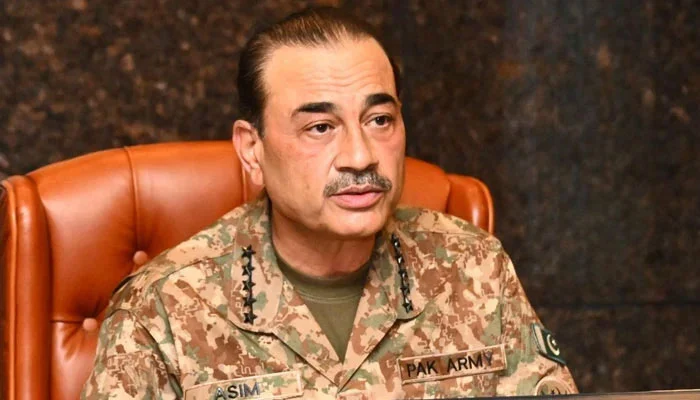ISLAMABAD – Inter-Services Public Relations (ISPR) Director General Lt Gen Ahmed Sharif Chaudhry has strongly denied speculation that Chief of Army Staff (COAS) Field Marshal Syed Asim Munir harbours any ambitions to become the President of Pakistan.
In a candid interview with The Economist, Lt Gen Chaudhry dismissed such speculation as “nonsense”, reiterating that the army chief remains committed solely to Pakistan’s strength and stability. His remarks follow a similar rebuttal issued in July by Interior Minister Mohsin Naqvi, who termed the rumours “a malicious campaign” and affirmed that no discussion or plan exists regarding any resignation by President Asif Ali Zardari or COAS Munir’s entry into the presidency.
The speculation reportedly gained momentum after the ruling coalition secured a two-thirds majority in parliament—sufficient to amend the Constitution—alongside COAS Munir’s rising popularity in the wake of Pakistan’s military engagement with India in May.
During the interview, Lt Gen Chaudhry also warned of the increasing threat of “digital terrorism”, noting that not enough is being done under existing laws to counter fake news and online propaganda, which he claimed has been instrumental in fuelling such unfounded reports.
On July 10, Naqvi emphasised that President Zardari “enjoys a strong and respectful relationship” with the military leadership. He quoted the president as saying:
“I know who is spreading these falsehoods, why they are doing so, and who stands to benefit from this propaganda.”
Naqvi stressed that COAS Munir’s sole focus is national security and stability, not political office.
Surge in Popularity After India Conflict
COAS Munir’s national standing received a significant boost after the brief but intense May military confrontation with India, following an attack on Indian tourists in Indian Illegally Occupied Jammu and Kashmir (IIOJK). India blamed the incident on Pakistan, prompting cross-border hostilities.
Pakistan launched Operation Bunyan-um-Marsoos, a large-scale retaliatory strike, during which the military reportedly downed six Indian fighter jets, including three Rafales, and dozens of drones. The conflict lasted 87 hours and concluded on May 10, following a ceasefire brokered by the United States.
US President Donald Trump took credit for de-escalating the situation through diplomatic intervention and even claimed his trade pressure played a role in stopping the war. While India denied this assertion, Pakistan formally nominated Trump for the 2026 Nobel Peace Prize, acknowledging his mediation efforts.
Field Marshal Title and Hybrid Governance Endorsement
In recognition of his “sagacious leadership and exceptional strategy” during the conflict, President Zardari and Prime Minister Shehbaz Sharif formally elevated Gen Munir to the rare and ceremonial rank of Field Marshal — a five-star designation last conferred on Gen Ayub Khan in 1959.
During a subsequent dinner hosted by the COAS, Field Marshal Munir praised the political leadership for its “strategic foresight” during what he described as Marka-i-Haq (Battle for Truth) against India.
Following the events, Defence Minister Khawaja Asif of the ruling PML-N hailed the “existing hybrid model of governance”, calling it a “practical necessity” and stating that it was “doing wonders” for the country’s stability and forward momentum.
